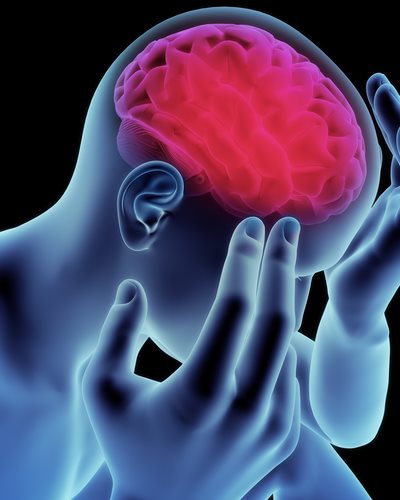Some car-wreck injuries are easy to spot, but concussions often go unnoticed. Even when a concussion is diagnosed, it is frequently minimized. For example, it may be labelled as a “mild” traumatic brain injury. Or, it may be dismissed as something that “will resolve within six months.” There is an old medical joke that is apropos: “Question: What is a ‘mild brain injury?’ Answer: ‘Someone else’s.’”
Depending on the nature of the accident and the type of impact, there are various levels of brain trauma that a person can suffer. While a less severe injury may seem better, these are the types that often go untreated, therefore significantly increasing the dangers associated with them. Moreover, injuries can take different lengths of time to start showing signs and symptoms of the trauma, ranging from days to weeks.
Initial Symptoms
Symptoms of post-accident brain injury can vary tremendously. Initial symptoms may include headache, nausea, issues with sleeping, dizziness, loss of consciousness, confusion and disorientation.
More severe injuries sometimes develop such as persistent headache lasting weeks or months as well as continual vomiting and nausea.
Sensory symptoms sometimes include blurry vision, ringing in the ears as well as issues with taste and smell.
Cognitive symptoms may include memory deficit, concentration, and mood swings. In some cases, very serious cognitive symptoms may develop including states of confusion, slurring of words, agitation and uncharacteristic, inappropriate behaviour.
Longer-Term Complications
As if these symptoms weren’t bad enough, there are further complications that can arise from a traumatic brain injury. Some may take longer to develop than others, yet they are all very serious in relation to an individual’s health.
Seizures often begin to appear around a week after an injury has been sustained, and these can often become recurring. Other complications include build ups of fluid in the skull, nerve damage, and even internal infections.
Our brains can also suffer damage that affects our long-term intelligence, directly affecting our cognitive functioning. Issues relating to memory, learning, mental processing and concentration are just a few complications that could arise, not to mention struggles with decision-making, problem-solving and organizing.
In some very severe cases, a traumatic injury could increase the risk of developing degenerative brain diseases. Dementia, Alzheimer’s and Parkinson’s are just a few of the potential diseases that could begin to form when dealing with a long-term injury to the brain.
The Good News: Possible Treatments
When it comes to traumatic brain injuries, there are many options available for treatment.
n extreme, acute cases, the best option may be surgery to remove pressure or deal with bleeding. This is rare, and usually occurs on an emergent basis immediately after a collision.
A mild injury can usually be treated with time and patience. Obviously medicine can be prescribed to help deal with symptoms such as headaches, but in most cases monitoring the nature of the injury is the most important form of treatment here. Keeping an eye on current symptoms and checking to see if they are worsening or if any new ones are developing is vitally important at this stage.
Regular check-ups with a doctor are important, but patients should be aware that many health providers will be dismissive of brain injuries. It may take time and effort to find a physician who is compassionate and sincerely interested in diagnosing and treating a brain injury.
In the long-term, physical and mental rehabilitation may be the most effective methods for dealing with brain injury. These treatments may involve occupational therapists, physiatrists, physical therapists, neuropsychologists and psychiatrists. We have seen many patients who have made great strides after hard work with the appropriate specialists.
If you or a loved one has been in a wreck and suffered a head injury, it is important that you consult attorneys who have experience with both motor vehicle collisions and litigating the medical issues concerning brain injury. Our attorneys have more than 80 years of combined experience in complex cases such as these. If you would like more information, please contact our office for a free initial consultation.

